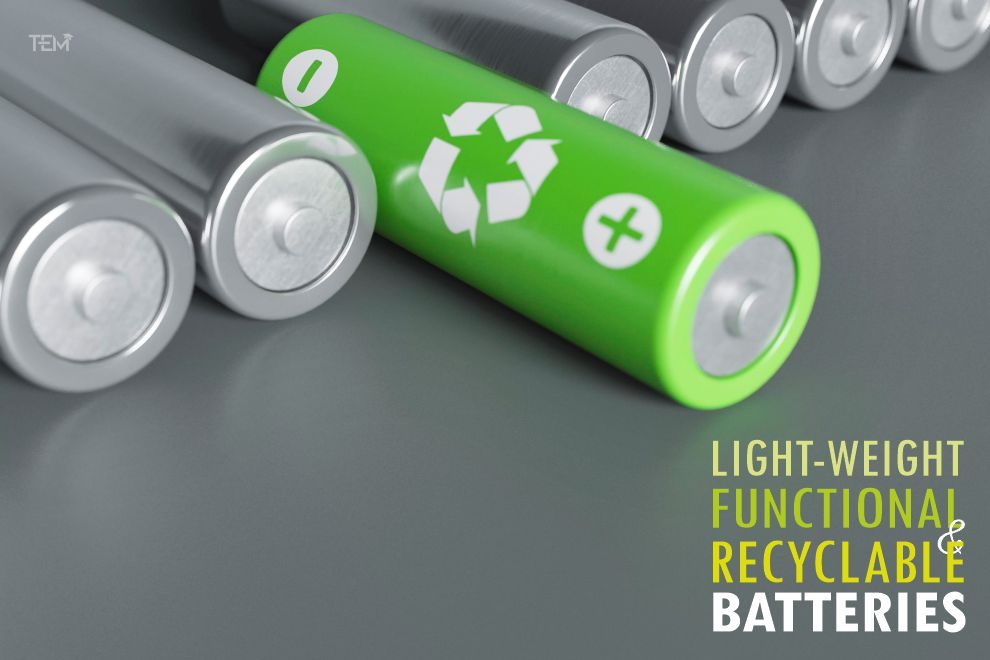
In the present generation, humans are totally encompassed by technology. This everyday-technology is operated by lithium-ion batteries which are incorporated within every gadget and electronic device, beginning with laptops to wrist watches. Although these batteries are powerful and light-weight, they are able to cause serious environmental complications and therefore are barely recycled. Caffeine compounds and materials found within the lithium-ion batteries are hazardous which valuable materials can't be recovered for reuse.
Lithium-ion batteries have simplified everyday chores of life by powering numerous electronics and gadgets. A significant amount of cobalt is required to prepare these batteries. Cobalt mining has led to dangerous installments of child labour that's been well documented on international levels. Additionally, merely a really small percentage of Li-ion batteries are recycled, increasing the interest in cobalt along with other strategic elements.
To counter and address the issue, scientific study has come up with the thought of batteries -with properties similar to that of the lithium-ion batteries – that can be easily recycled and would refrain from the use of cobalt.
Researchers from Texas and A&M University make a breakthrough in theorizing battery production that will not constitute cobalt among the main constituents. Within an article published underneath the May issue of Nature, they outlined their growth and development of a new battery technology platform that's free from metal. This new battery technology platform relies on a polypeptide organic radical construction.
The research team wanted to develop a battery that would be lightweight and robust, like lithium-ion batteries, but that would be more easily recyclable. To do this, they built electrodes, which transfer electrical charges interior and exterior a battery, with degradable polymers rather than metals.
The all-polypeptide organic radical battery is composed of redox-active amino-acid macromolecules. This helps to ensure that caffeine constituents solve the issue of recyclability. According to Lutkenhaus, among the research members, the components of the new battery platform could be degraded on demand under acidic conditions to create proteins, other foundations and degradation products Body from the major breakthroughs in this research.
He further added, \”The serious problem with lithium-ion batteries at this time is that they’re not recycled as far as that we're have to for future years electrified transportation economy.The speed of recycling lithium-ion batteries at this time is in the single digits. There's valuable material within the lithium-ion battery, but it’s very hard and energy intensive to recuperate.\”
The latest and breakthrough development of a metal-free and free from chemically hazardous constituents marks a significant approach towards sustainable, recyclable batteries that lessen the reliance upon strategic materials like cobalt.
Related:- 15 Top-Rated Digital Notebooks for 2021
The multidisciplinary team of researchers included Dr. Jodie Lutkenhaus, Axalta Coating Systems Chair and professor in the Artie McFerrin Department of Chemical Engineering, and Dr. Karen Wooley, distinguished professor in the Department of Chemistry and holder from the W.T. Doherty-Welch Chair in Chemistry within the College of Science from the Texas and A&M university.
According to Wooley who has been recently honoured as the 2021 SEC Professor of the Year, \”By leaving lithium and working with these polypeptides, which are aspects of proteins, it truly takes us into this realm of not only avoiding the need for mining precious metals, but opening possibilities to power wearable or implantable electronic devices also to easily recycle the brand new batteries. They (polypeptide batteries) are degradable, they are recyclable, they are non-toxic and they're safer across the board.\”
Moreover, Wooley and Lutkenhaus have begun employed in collaboration with Dr. Daniel Tabor, assistant professor in the Department of Chemistry, via a 2021 Texas A&M Triads for Transformation (T3) grant that aims to utilize machine learning to optimize the types of materials and structure of the battery platform.





